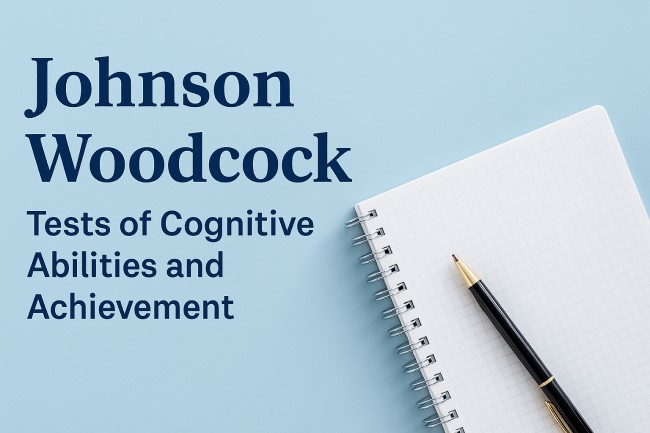Johnson Woodcock: Understanding the Woodcock–Johnson Cognitive and Achievement Tests

Introduction to Johnson Woodcock
The term Johnson Woodcock refers to the highly regarded Woodcock–Johnson Tests, which are a collection of standardized assessments designed to evaluate a broad range of cognitive abilities and academic skills. These tests have become a foundational tool in educational and psychological evaluations. Created by Dr. Richard Woodcock and Mary E. Bonner Johnson, the tests are widely used in schools, clinics, and research settings to help identify strengths and weaknesses in learning and intellectual performance.
What Are the Woodcock–Johnson Tests?
The Woodcock–Johnson (WJ) test suite is one of the most comprehensive and widely respected tools available for evaluating intellectual and educational functioning. It comprises three main batteries:
Woodcock Johnson Cognitive Tests
The Woodcock Johnson Cognitive Tests assess intellectual abilities such as problem-solving, processing speed, memory, comprehension, and reasoning. These assessments are grounded in the Cattell-Horn-Carroll (CHC) Theory of Cognitive Abilities, which is a widely accepted framework in psychological testing.
Key Cognitive Areas Assessed:
- Fluid reasoning
- Short-term and long-term memory
- Auditory and visual processing
- Comprehension-knowledge
- Processing speed
These components offer insights into how a person thinks, processes information, and solves problems, making them invaluable for understanding cognitive strengths and areas needing support.
Woodcock Johnson Achievement Tests
The Achievement Tests evaluate skills in reading, writing, mathematics, and other academic domains. This section is especially helpful for identifying learning disabilities or confirming academic strengths.
Key Achievement Areas Assessed:
- Reading fluency and comprehension
- Mathematical calculation and reasoning
- Writing fluency and mechanics
- Oral language and vocabulary
These tests are frequently used in educational settings for Individualized Education Programs (IEPs), special education referrals, and gifted program placements.
Woodcock Johnson Oral Language Tests
This battery is designed to assess both expressive and receptive language abilities. It is particularly useful for diagnosing language-based learning issues or speech disorders.
Areas Covered:
- Picture vocabulary
- Oral comprehension
- Sentence repetition
- Understanding directions
Purpose and Importance of Johnson Woodcock Tests
The Johnson Woodcock tests serve multiple essential purposes:
Educational Planning
By evaluating both cognitive and academic performance, educators and psychologists can develop targeted educational plans that cater to an individual’s specific needs.
Diagnosing Learning Disabilities
The detailed breakdown of skills helps in diagnosing a range of learning disorders, including dyslexia, dyscalculia, and attention-deficit disorders.
Identifying Giftedness
The tests can also be used to determine whether a student qualifies for gifted and talented programs by identifying high performance in cognitive and academic areas.
Who Can Take the Tests?
One of the major strengths of the Woodcock–Johnson suite is its broad applicability. The tests can be administered to individuals from age 2 to over 90 years. This makes them useful for:
- Preschool screening
- School-age academic and cognitive evaluations
- College-level assessments
- Adult learning and career planning
Scoring and Interpretation
The results from the Johnson Woodcock assessments are presented in various forms:
- Standard scores (based on a mean of 100)
- Percentile ranks
- Age and grade equivalents
- Cluster scores (composite scores combining related subtests)
These scores are interpreted by trained professionals such as school psychologists, neuropsychologists, and educational diagnosticians to form a comprehensive profile of an individual’s cognitive and academic abilities.
Related Keywords: Deep Dive
Woodcock Johnson Cognitive
This keyword specifically refers to the cognitive component of the Woodcock–Johnson test battery. It is widely recognized for its precision in identifying intellectual strengths and weaknesses. Educational professionals often use it to understand how a student processes information, which is essential in both academic and behavioral planning.
Woodcock Johnson
The broader term “Woodcock Johnson” encompasses all three batteries—Cognitive, Achievement, and Oral Language. It is a staple in educational and psychological testing and is updated periodically to reflect new research and educational standards.
Advantages of the Johnson Woodcock Tests
Comprehensive Coverage
Few test batteries cover such a wide range of skills, from basic academic knowledge to complex cognitive processing.
Norm-Referenced
The tests are normed on a large, representative sample of the population, allowing for accurate comparisons across age groups and demographics.
Flexible Administration
The structure allows for partial administration when a full assessment isn’t necessary. Professionals can select specific subtests based on referral questions.
Limitations to Consider
Although powerful, the tests are not without limitations. They must be administered by trained professionals, and results should always be interpreted in the context of other assessments and background information. Also, cultural and language differences can sometimes affect performance.
Conclusion
The Johnson Woodcock suite of assessments is a critical tool in both educational and psychological evaluations. By offering detailed insights into cognitive and academic functioning, these tests help professionals support individuals in reaching their full potential. Whether you’re a parent, teacher, clinician, or researcher, understanding the depth and utility of the Woodcock Johnson cognitive and achievement tests is invaluable in identifying abilities and addressing challenges across all stages of life.



